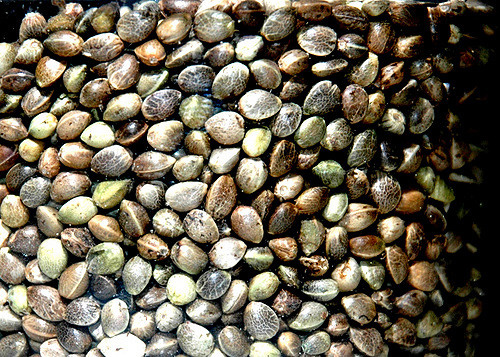
With the lack of a common regime for global distribution, the flow of certified hemp planting seed is typically “uncertain, goofy and chaotic” so far this year, one long-time European breeder told HempToday, with “nothing normal or predictable.”
With no worldwide standards in place, the hempseed supply chain develops haphazardly – and often spontaneously – creating an uncertain situation stakeholders don’t expect to be sorted out any time soon.
What is certain is that Canadian, Chinese and European certified hemp seed suppliers will compete to meet demand from the advancing U.S. market over the next few years, industry observers say. But even that looks to be a slow-moving process.
Demand & challenges in USA
Requests for seeds and clones for the 2018 planting season are brisk in the United States, said Zev Paiss of HEMPmarket.place, a hemp broker based in Colorado that sells planting seed and other bulk products. But “the fact that there are still almost no U.S. certified seeds makes many requests virtually impossible to fill,” Paiss told HempToday. Also, U.S. states that allow growing of industrial hemp require farmers to import their seeds, with burdensome amounts of paperwork, through state departments of agriculture, presenting a major bureaucratic challenge to seed acquisition, Paiss notes.
The National Hemp Association (NHA) says it is working to overcome delays in shipments of certified planting seed to avoid problems U.S. stakeholders suffered last year when deliveries, in many cases, didn’t arrive until June.
DEA’s ‘propensity to delay’
“Given the DEA’s (U.S. Drug Enforcement Agency) propensity to delay the issuance of import permits of hemp seed, any further delay will put us in a similar situation as last year,” said Geoff Whaling, Chairman of the Board at the NHA.
NHA is working directly with the U.S. Attorney General’s office pushing seed imports and other issues challenging industrial hemp, Whaling said.
While the recent announcement of the first U.S.-developed certified seed is a welcome advancement, according to HEMPmarket.place’s Paiss, supplies of the new strain are miniscule.
Deals do get done
Deals are getting done. Bija Hemp and affiliated International Hemp Solutions (IHS), both of Colorado, say they have struck a deal to import certified hemp seeds from Europe through a partnership with Adams State University. The parties recently announced an agreement with Poland’s state-owned Institute of Natural Fibers & Medicinal Plants (IWNiRZ), but most of those seeds will go to local farmers in Colorado’s San Luis Valley where an effort is under way to build up a hemp grain and fiber industry, according to Paiss.
More systemic problems
With U.S. hemp programs under federal control that prohibits moving planting seeds across state lines, low volumes available lead to high prices, according to NHA Executive Director Erica McBride – an equation that affects many aspects of the industry.
“The banking and credit card processing issues and lack of crop insurance work to keep acreage down and costs high which in turn hinders investment into processing plants,” McBride also noted, lamenting a lack of infrastructure that makes it difficult to match farmers with processors and product producers.
“It’s the same chicken and egg problem we see across the industry,” McBride said. “The banking and credit card processing issues and lack of crop insurance work to keep acreage down and costs high which in turn hinders the investment into the processing plants.”
Europe chasing CBD-rich strains
Across Europe, suppliers say they’re feeling strong demand for seed to produce CBD. “Everybody is asking for high CBD strains, none of which are registered yet in the EU,” said Hana Gabrielova, CEO at Hempoint, the vertically integrated Czech hemp company that is a certified seed broker. “So we’re having to a do a lot of explaining to many clients that there are no registered seeds that were bred for high CBD. There are no guarantees about the levels of CBD in any of those certified strains out there.”
The lack of certified high CBD hemp varieties on the EU list of legal cultivars is attributable to the 0.2% THC limit observed in most European countries, Gabrielova noted. “The varieties are registered for seeds yield or fiber content but not for CBD content,” she said. “There’s been no breeding done so far for that, so nothing is stabilized yet,” she said.
Finola remains popular
Finola, a cultivar from Finland “is still very popular because it’s easy to harvest for grain with normal harvesters,” Gabrielova said. Italian growers are chasing such dioicus varieties to meet rising demand for sensimilla buds, presumably to feed the latest rage – “nobacco” – low-THC, high CBD green matter rolled into cigarettes and otherwise smoked. The craze started last year in Italy and Switzerland, both of which have relatively high allowances for THC. Switzerland allows the growing of cannabis cultivars with up to 1% THC as hemp; Italy has updated its THC tolerance level to 0.6%.
Europe also has yet to set rules for the sales of clones or seeds with high THC, and has no standards or legal registration process for base materials needed in the production of medical cannabis destined for pharmacies, Gabrielova added.
Australia’s promise for China
The opening of Australia’s hempseed food market late last year, with many farmers planning to expand their fields for this year’s planting season, holds promise primarily for Chinese seed sellers. And while China and other exporting nations see vast potential in India’s hemp industry, sources say the Indian market develops very slowly due to bottlenecks related to the permitting process.
No comments:
Post a Comment